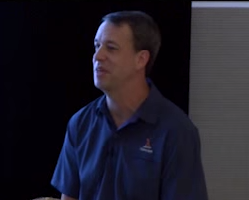Interactive Metaprogramming Shell based on Clang
A new video from Meeting C++ 2014:
Interactive Metaprogramming Shell based on Clang
by Ábel Sinkovics
From the talk description:
Developing metaprograms is hard and painful. Templight (http://plc.inf.elte.hu/templight/) supports the development and debugging of template metaprograms, but the code has to be recompiled after every minor change and tricks are needed to retrieve useful information about the result...

